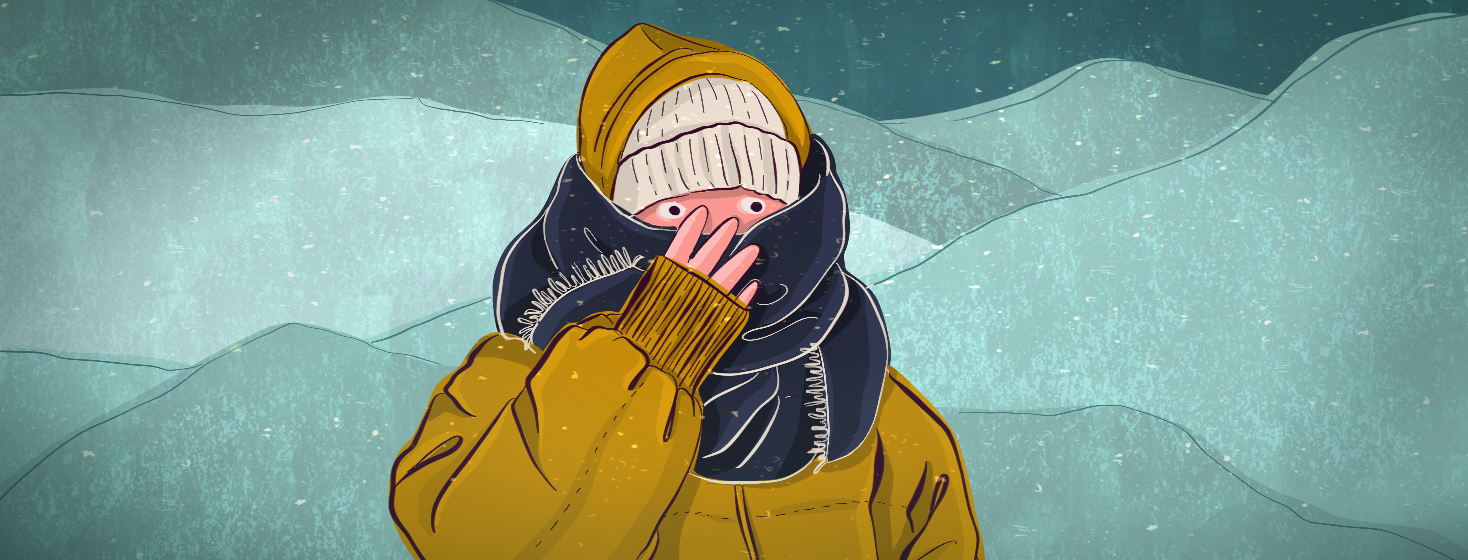Cold Weather and Lupus: How To Be Prepared
The cold winter months are hard for many people, especially for those living with conditions like lupus. Sadly people who live with lupus are quite used to dealing with flares. Even though triggers for such flares vary dramatically from person to person, one cause that impacts almost everyone is changes in the weather.1 So much so that some feel that they would be a great weather person because they can predict the changes based on how their body feels.
Why does the cold weather impact us, and what can we do to help survive the cold winter months? Let's take a look.
Why does the cold impact lupus so much?
When a person is cold, the blood vessels constrict, preventing heat loss from the body, thus causing painful flares. Our body is pretty amazing because when we are cold, it will change how our blood flows and send most of our blood to our major organs to prevent catastrophic injury. But as our blood vessels get smaller, pressure can increase in our head, joints, and extremities. The increased pressure lessens blood flow to the fingers, toes, and limbs. When this happens, and the tissues in areas like our fingers and toes are starved for oxygen, normally provided by good blood flow, they become very painful.
What can we do to avoid flares in the winter?
The most important thing that we can do to prevent a cold-weather flare is to STAY WARM. Dressing in layers, covering all skin when going outdoors, or even something as simple as turning up the thermostat in your home or car can make a drastic difference. Covering your feet, hands, and head with thick gloves, socks, and a hat will help prevent your body from getting too cold. One other option would be to invest in a good space heater. But this requires lots of research and care, so nothing catches fire.
7 ways to prevent flares from cold weather
- Dress in layers. Doing this causes your body heat to be trapped in your clothing. The layers act as a buffer and prevent you from losing said body heat.
- Enjoy warm drinks. This will help to warm you from the inside out. Keep extra warm clothes or blankets in your car. We never expect something bad to happen but should you get stuck somewhere, become trapped in bad weather, or just go somewhere that is very cold, extra clothes are essential and very helpful.
- Purchase warm inserts for your shoes. The inserts can be cut to fit inside your shoe and work to insulate your feet and prevent them from getting too cold. If you are unfamiliar with these, like I was, they can be purchased in many places including Amazon.
- Purchase hand warmers for your pockets. These are eBay to activate and can be found in the camping/outdoor departments in most stores. Once they are activated they provide several hours of heat. They help to prevent your hands/fingers from getting too cold. These are especially handy for those living with Raynaud's syndrome.2
- Eat frequent small meals or snacks. This will help your body to have the fuel it needs to help maintain your body temperature.
- Avoid alcohol.Alcohol thins your blood thus causing you to feel the effects of being the cold more. Also, alcohol may make you care less about being cold allowing you to stay out in the cold longer without noticing.
- Keep an eye on the weather. By doing this you may be able to head off a flare before it starts simply by being prepared.
Do your best to stay prepared
In reality, there is not much we can do about the cold weather other than staying inside. Or staying as warm as possible and being prepared. If you live in an area that has the possibility of weather storms, keep an eye on the weather. Doing all you can to stay prepared. Hopefully heading off a flare before it begins by being prepared and using the methods mentioned above.

Join the conversation